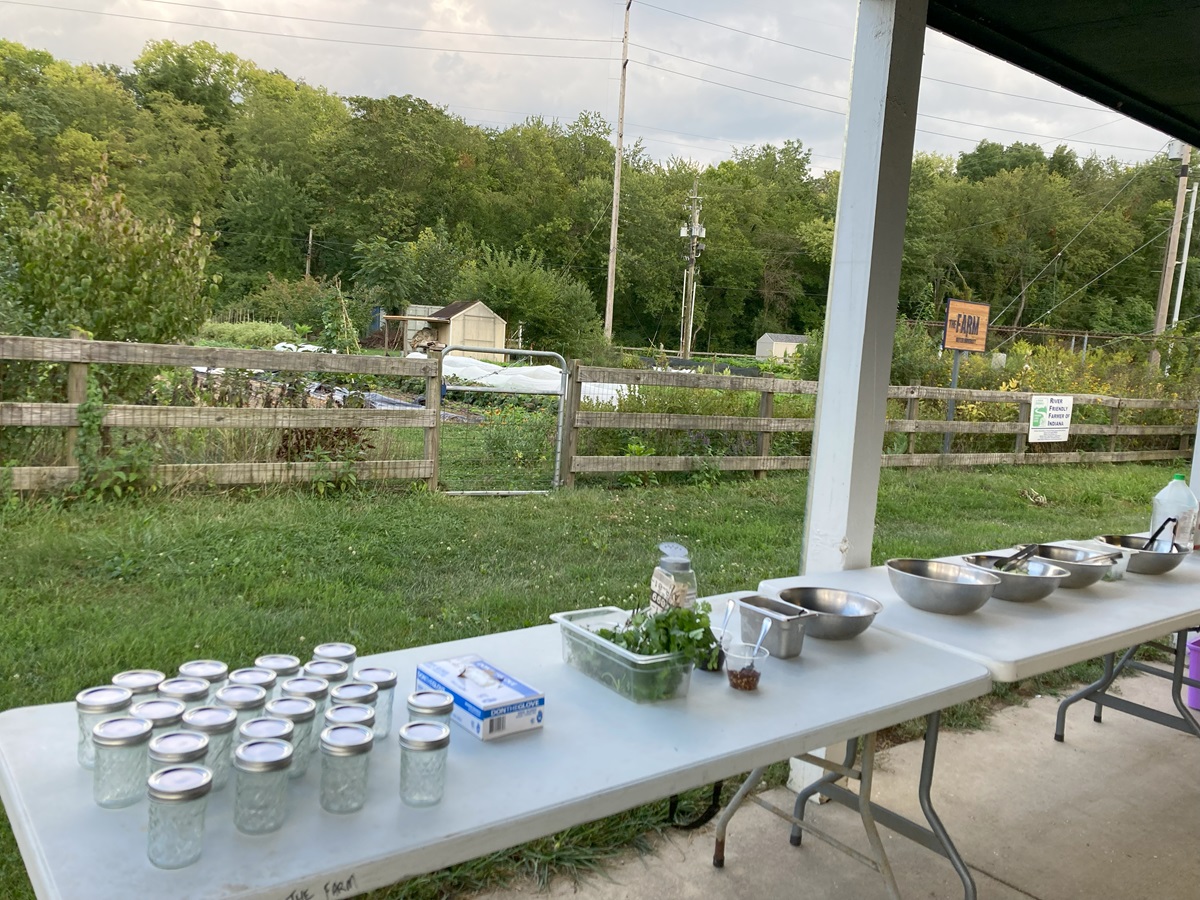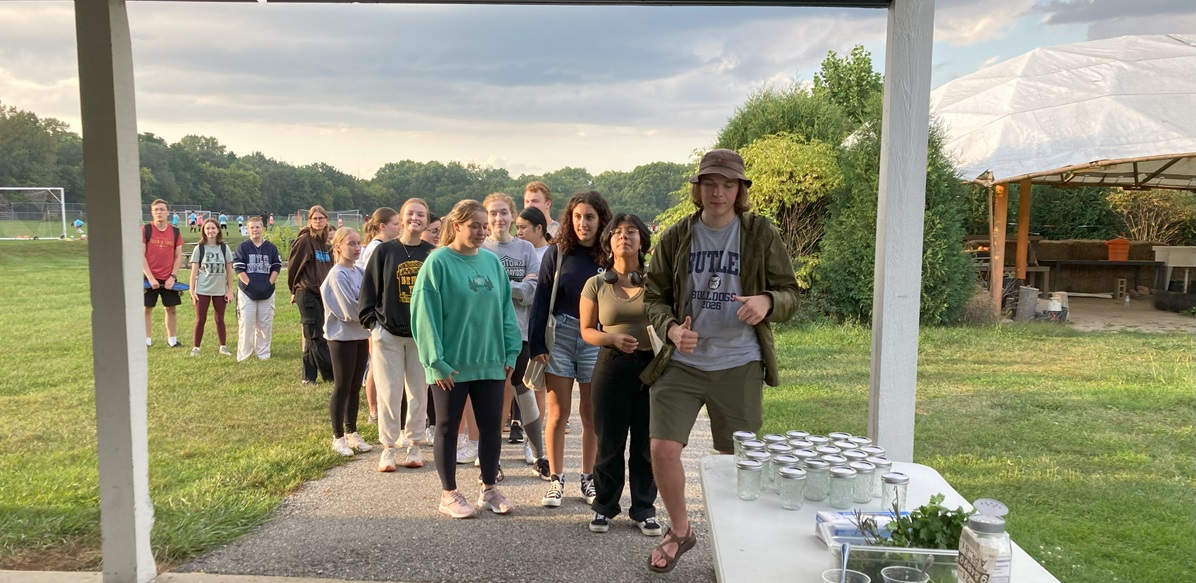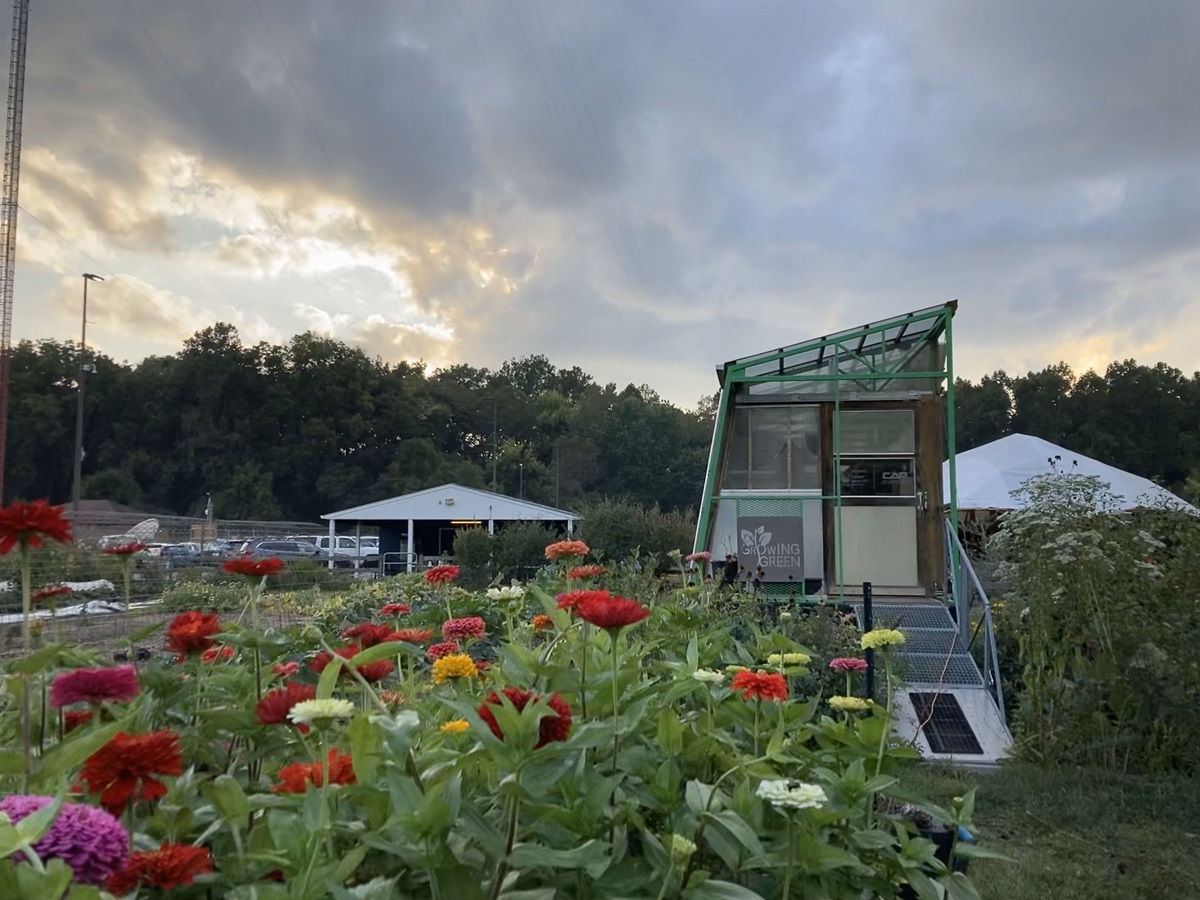Pickling in Paradise on The Farm at Butler
- by Elise Kulers

Getting ready for a pickling demo at The Farm at Butler.
Tucked away on the edge of campus, over a bridge and beside the athletic fields, lies The Farm at Butler, a gem within Butler University in Indianapolis, IN. Just shy of one acre, this agricultural oasis is a clear example of how urban farming can transform previously dormant land into a thriving ecosystem and classroom.
Just fourteen years ago, the land where the farm now stands was a parking lot. Since 2011, Farmer Tim Dorsey and the Butler Center for Urban Ecology and Sustainability (CUES) have been (un-)paving the way to breathe life into the land. What used to be a space for cars now produces thousands of pounds of food, supports native plants and pollinators, rejuvenates the soil, and contributes to a healthy watershed.
As Tim puts it, “the purpose of the farm is to elevate the ecological capacity of the land,” using an agroecological approach. Agroecology integrates ecological principles into agriculture, yielding robust, sustainable systems that work with nature rather than against it. At The Farm at Butler, they grow a highly diversified array of produce — over 200 varieties! — using soil-friendly practices.
This includes rotating crops to discourage the buildup of pests or disease, using natural insect predators to address pests rather than spray pesticides, planting cover crops in between seasons to enrich the soil and reduce erosion, spreading nutrient-rich compost instead of chemical fertilizer, and not tilling the land as to conserve its delicate soil structure. In addition to traditional row crops, the fields are surrounded by fruit trees and native bushes, which create microhabitats for nearby pollinators.
This thoughtful approach to caring for the land supports a productive harvest as well, yielding over 5,500 pounds of produce per year, nearly 100% of which is purchased by the Bon Appétit team at Butler University to serve in the dining hall in Atherton Union. Beyond a reliable purchasing relationship, the farm has also received support from Bon Appétit through a recent FEAST Fund grant, which was used to create an on-site mural to illustrate its mission as a welcoming educational space.

Students line up for a pickling demo at The Farm at Butler.
Working Farm, Living Classroom
To that end, Butler professors from a range of disciplines, from environmental science to business and religion, use the farm as an outdoor living classroom by weaving course curricula through the lens of sustainable agriculture. A Local Food Systems minor was developed around the classes taught at the farm with the help of a grant from the National Science Foundation in 2019, allowing students to take full advantage of their proximity to a unique place to learn about food systems from many angles.
Regularly hosting classes, research projects, and other learning opportunities for interns and community members, The Farm at Butler provided the perfect backdrop for a quick pickling demonstration co-hosted with Butler Eco-Reps this past fall. Over 35 students joined me to learn how to make pickled vegetables, a timeless and versatile method of food preservation, using freshly harvested vegetables from the Farm.
Attendees eagerly lined up to fill their personalized jars with assorted sweet and spicy peppers, root vegetables, and cucumbers, grown just steps away by Tim and his team of interns. They added their own mix of herbs, spices, and aromatics before pouring in a simple brine made with vinegar, water, salt, and sugar. As participants learned, fall is an ideal time for pickling to capture the abundance of late season produce at its peak before the weather cools and production slows.
It’s clear that The Farm at Butler wears many hats, as a productive market farm, interdisciplinary learning hub, and a haven for native plants and pollinators. Beyond that, it demonstrates the revitalizing potential of urban agriculture on college campuses and beyond. After all, un-paving a parking lot can create a kind of paradise.
